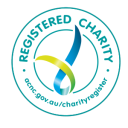Sitting down with Kristen Huey from Commonwealth Bank to discuss the eligible interest holder consent process from a bank’s perspective.
A few months back, we had the chance to sit down with Kristen Huey and the team from Commonwealth Bank to get their perspective on the eligible interest holder consent process. You can find a recording of the webinar here:
Afterwards, we had a chance to rehash some of the topics covered in a casual conversation with Kristen. It’s a good overview of what to think about when planning your carbon project, the risks your banks will be concerned about and how they view these.
Let’s dig in.
CFF: Hey Kristen, thanks for catching up with us! It’s been a little while since we spoke now. Thinking back on our webinar, we covered a lot of information in a short time – what was one of the key things you want people to take away from that session?
Kristen: I think one of the key messages for me was to get people to engage with their bank/er early. There are several reasons why this is important, from understanding processing timeframes to the paperwork required.
Ideally though, the early discussions with your banker (like any trusted adviser) is to help you to work through some of the big questions:
- How does this project link into your long-term operational plans?
- What impact will the project have on your current operations?
- Have you had access to the appropriate data to make informed decisions?
The ability to research and articulate why a project is right for you, and how it ties into your operations’ plans is a valuable tool even early in project development.
CFF: Great tip, we did also talk about what banks need to know when considering consent for a carbon project proposal. There seemed to be quite a lot involved.
Kristen: Absolutely, and to be fair as mentioned in the webinar, I think a lot of that information is often contained in a quality project plan/proposal document.
On a very broad basis, the 4 key items regarding the carbon project are:
- A copy of your project development plan
- An outline of your proposed ACCU generation and your ongoing regulatory obligations
- Proposed ACCU sale plan and associated forecasts
- Copy of your agreement with the project developer
There is a very simple Fact Sheet available on the Australian Banking Association website that is a great foundation for anyone looking to understand what their bank is going to be looking for. You can find it on the ABA website it’s titled ‘Seeking eligible interest holder consent from your bank’: https://www.ausbanking.org.au/resource/fact-sheet-seeking-eligible-interest-holder-consent-from-your-bank/
Please Note: This information will in most cases be in addition to your current financials to assist in the bank’s review.
CFF: That is brilliant, I know there will be people keen to take a look at the Fact Sheet. What about some of the other factors/risks that you talked about?
Kristen: Yes, I did raise a few other risks and some of these have definitely been flagged by other CFF webinar guests in the past. A lot of these will boil down to really good due diligence and risk awareness. Which is why we want to make sure that you have access to the information you need to make informed decisions for your situation.
In addition to the project details, don’t forget to think about:
- Permanence risk – considering the potential impact of a long term project, costs to maintain sequestered carbon, what is the impact on land value?
- Regulatory risk – Have you considered potential changes in policy/obligations
- Contract/Partner risk – Making sure that your project partners can deliver the project successfully, and knowing what the contracted terms are (know what you are signing on for)
- Price and Forward Contract risk – Being aware of the potential impacts to market price changes, and having a plan for non-delivery risk if you do agree to a forward contract for your credits.
CFF: And we met some of the team that help to review the Carbon Consent applications, and support clients in this space.
Kristen: You did, we have a multi-layered approach to assessing applications for consent, we try to provide a holistic risk assessment of an application. The review involves the client’s banker, our risk team, and often the carbon team as well.
Ideally we want to make sure that the client in entering into the project with the right tools for the potential risks and returns, to make sure that the impact to their existing operation is considered and doesn’t cause any deterioration to their overall position, and also look to ensure that there is some provision in the event that something goes wrong.
We are in finance, we are in risk – so we are definitely in the mindset of supporting our clients in this emerging Australian market, but most certainly in a considered and responsible manner.
CFF: Any final thoughts?
Kristen: I think for me, just to say that this unique opportunity in the Australian Carbon market is very important as we support a transition to a low carbon economy. But, make sure that you are making the decisions that are right for you and your operation, understand the risks, and certainly reach out if you have questions.
We have a great team that are passionate about supporting clients who are navigating this space, be it through project funding, consent applications, or buying/selling ACCUs – so plenty of experience and connection to help.
Ready to find out more?
Explore our range of educational resources in our Carbon Farming Education Hub where we frequently publish educational articles, webinars, and guidebooks.
When you’re ready to explore the feasibility of undertaking a carbon project on your property, email us at [email protected] or give us a bell at (08) 6835 1140 to be connected with one of our project facilitators.


![AFN – Cert Accredited Expert [RGB] AFN - Cert Accredited Expert [RGB]](https://carbonfarming.org.au/wp-content/uploads/elementor/thumbs/AFN-Cert-Accredited-Expert-RGB-e1725255016744-qti2uogw4b9a3s6au2d1bbf4utb8ggjuwvkj4qpce8.png)